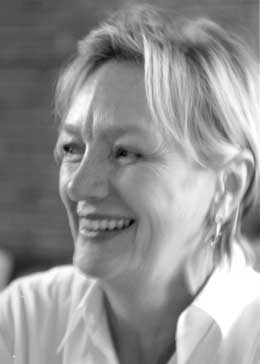I'm Probably Wrong
Warm, today, warmer in some ways than some we get during the heart of summer. In the Bay Area it has always been thus. Which means I have the fan on low at my feet as I look over a roll of black and white I got back from the camera shop today. I am going to have to develop my own negatives. No doubt about it, I will order the materials when B & H opens again next week for business. And have the camera shop do the contact sheets from the negatives. Let them mess around with the trays and the chemicals and the drier, I don't want to do that again without a real darkroom and, well, I'm pretty sure I don't want another darkroom. Time marches on and Photoshop is its prophet.
I met with the young woman at the office who's wedding I am shooting this weekend. Jesus, I'm definitely responsible for this wedding. The family portraits: the bride, the groom, the brides maids, the cousins, kissing or otherwise, the grandparents and god only knows, doesn't matter what was said, I'm the one. I am also reliably informed there are family contingents who do not get along. I mean don't get along to the point getting them together in one place for the wedding was a feat of skill and penance. So I'm going to San Francisco tomorrow at lunch and picking up forty rolls of film and I'm charging up a bunch of batteries and hoping for the best. It will be one long weekend.
I went to see Barbershop over the weekend. I liked it. There's a line, of course, a hard to pin down fuzzy line between good humor and the disastrous. There's a certain amount of danger in having a character, even a good humored African American character, suggest that Rosa Parks' motivation for not giving up her seat to a white woman on that bus was sore feet, rather than any statement of conscience, and the fact she was a secretary for the NAACP got her the notoriety. Now it must be said that the entire (black except one) cast in that scene came down on him like a ton of bricks (including, quite eloquently, the except one), but evidently Jesse Jackson has asked the movie's producers to edit out that dialogue in future releases. a hard to pin down fuzzy line between good humor and the disastrous. There's a certain amount of danger in having a character, even a good humored African American character, suggest that Rosa Parks' motivation for not giving up her seat to a white woman on that bus was sore feet, rather than any statement of conscience, and the fact she was a secretary for the NAACP got her the notoriety. Now it must be said that the entire (black except one) cast in that scene came down on him like a ton of bricks (including, quite eloquently, the except one), but evidently Jesse Jackson has asked the movie's producers to edit out that dialogue in future releases.
Now let's be clear about Rosa Parks. Rosa Parks and what Rosa Parks represents keeps company with Martin Luther King in the pantheon of what's right in this life, black or white. Rosa Parks is the real deal. And so, well, the writer director was playing with fire when he attempted those lines (for which he gets points for balls, if not chops) and I can understand why the Rev. Jackson might make this suggestion. The movie audience happened to be primarily African American at the showing and they were digging it, the movie is doing well with both black and white audiences.
You were looking over your shoulder checking out the crowd to be sure it was OK to be enjoying it? Wadda wuss.
If I were a wuss (or smarter), I wouldn't bring it up. There's the art and there's the politics. The art, if it's done from the core, is always right. Good art is often unpolitic and politically outrageous, politically incorrect for the moment, but never more than the moment. Time will always will out. Politically correct art is usually bad art. It has to do with where it comes from. The artist takes his or her marching orders from somewhere inside, could be a politically correct inside, a hip hop diddle-dee bop inside, but often as not it's a hard, unforgiving, formed by who knows what inside that doesn't give a fuck for politic.
So, now we're talking about art, this Barbershop flick. Must be pretty hot stuff.
Well, no, but it's something different. I'm not sure there's been anything like it in the sense it "opens up" emotionally in ways I haven't seen before in a movie written, directed and acted by African American artists. I had the feeling there were barriers dropped here, as if you were sitting in somebody's living room talking with friends rather than engaging in formal discussion across a table. Films made by people like Spike Lee have a much harder edge handling some of the same subjects. You respect them, you enjoy them, but you are also stepping very carefully through a mine field with little room for error. Barbershop is about race relations, everything, really, is about race relations, but this one is more open, forgiving and vulnerable in ways I've not seen before. Black artists kidding about Rosa Parks or Martin Luther King in front of a black or a white audience, most especially a white audience, marks in my mind a loosening of racial tension. Loosening tension is a big deal.
So this movie is a big deal?
The two guys with the empty cash machine are a bit too, um, stereotypical.
Still, might be all right.
Might be. I'm probably wrong.
|